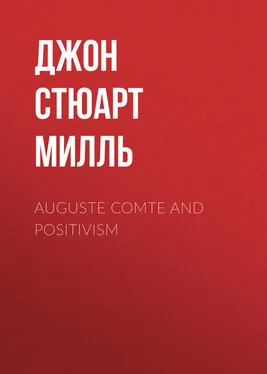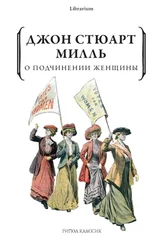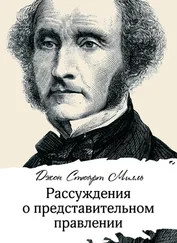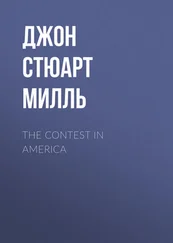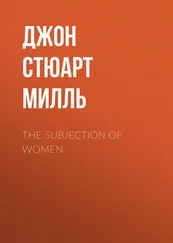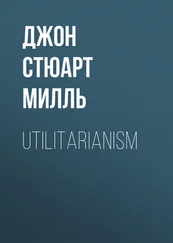Джон Милль - Auguste Comte and Positivism
Здесь есть возможность читать онлайн «Джон Милль - Auguste Comte and Positivism» — ознакомительный отрывок электронной книги совершенно бесплатно, а после прочтения отрывка купить полную версию. В некоторых случаях можно слушать аудио, скачать через торрент в формате fb2 и присутствует краткое содержание. Жанр: Философия, literature_19, foreign_antique, foreign_prose, на английском языке. Описание произведения, (предисловие) а так же отзывы посетителей доступны на портале библиотеки ЛибКат.
- Название:Auguste Comte and Positivism
- Автор:
- Жанр:
- Год:неизвестен
- ISBN:нет данных
- Рейтинг книги:4 / 5. Голосов: 1
-
Избранное:Добавить в избранное
- Отзывы:
-
Ваша оценка:
- 80
- 1
- 2
- 3
- 4
- 5
Auguste Comte and Positivism: краткое содержание, описание и аннотация
Предлагаем к чтению аннотацию, описание, краткое содержание или предисловие (зависит от того, что написал сам автор книги «Auguste Comte and Positivism»). Если вы не нашли необходимую информацию о книге — напишите в комментариях, мы постараемся отыскать её.
Auguste Comte and Positivism — читать онлайн ознакомительный отрывок
Ниже представлен текст книги, разбитый по страницам. Система сохранения места последней прочитанной страницы, позволяет с удобством читать онлайн бесплатно книгу «Auguste Comte and Positivism», без необходимости каждый раз заново искать на чём Вы остановились. Поставьте закладку, и сможете в любой момент перейти на страницу, на которой закончили чтение.
Интервал:
Закладка:
M. Comte claims no originality for this conception of human knowledge. He avows that it has been virtually acted on from the earliest period by all who have made any real contribution to science, and became distinctly present to the minds of speculative men from the time of Bacon, Descartes, and Galileo, whom he regards as collectively the founders of the Positive Philosophy. As he says, the knowledge which mankind, even in the earliest ages, chiefly pursued, being that which they most needed, was fore knowledge: "savoir, pour prevoir." When they sought for the cause, it was mainly in order to control the effect or if it was uncontrollable, to foreknow and adapt their conduct to it. Now, all foresight of phaenomena, and power over them, depend on knowledge of their sequences, and not upon any notion we may have formed respecting their origin or inmost nature. We foresee a fact or event by means of facts which are signs of it, because experience has shown them to be its antecedents. We bring about any fact, other than our own muscular contractions, by means of some fact which experience has shown to be followed by it. All foresight, therefore, and all intelligent action, have only been possible in proportion as men have successfully attempted to ascertain the successions of phaenomena. Neither foreknowledge, nor the knowledge which is practical power, can be acquired by any other means.
The conviction, however, that knowledge of the successions and co-existences of phaenomena is the sole knowledge accessible to us, could not be arrived at in a very early stage of the progress of thought. Men have not even now left off hoping for other knowledge, nor believing that they have attained it; and that, when attained, it is, in some undefinable manner, greatly more precious than mere knowledge of sequences and co-existences. The true doctrine was not seen in its full clearness even by Bacon, though it is the result to which all his speculations tend: still less by Descartes. It was, however, correctly apprehended by Newton. 1 1 See the Chapter on Efficient Causes in Reid's "Essays on the Active Powers," which is avowedly grounded on Newton's ideas.
But it was probably first conceived in its entire generality by Hume, who carries it a step further than Comte, maintaining not merely that the only causes of phaenomena which can be known to us are other phaenomena, their invariable antecedents, but that there is no other kind of causes: cause, as he interprets it, means the invariable antecedent. This is the only part of Hume's doctrine which was contested by his great adversary, Kant; who, maintaining as strenuously as Comte that we know nothing of Things in themselves, of Noumena, of real Substances and real Causes, yet peremptorily asserted their existence. But neither does Comte question this: on the contrary, all his language implies it. Among the direct successors of Hume, the writer who has best stated and defended Comte's fundamental doctrine is Dr Thomas Brown. The doctrine and spirit of Brown's philosophy are entirely Positivist, and no better introduction to Positivism than the early part of his Lectures has yet been produced. Of living thinkers we do not speak; but the same great truth formed the groundwork of all the speculative philosophy of Bentham, and pre-eminently of James Mill: and Sir William Hamilton's famous doctrine of the Relativity of human knowledge has guided many to it, though we cannot credit Sir William Hamilton himself with having understood the principle, or been willing to assent to it if he had.
The foundation of M. Comte's philosophy is thus in no way peculiar to him, but the general property of the age, however far as yet from being universally accepted even by thoughtful minds.
The philosophy called Positive is not a recent invention of M. Comte, but a simple adherence to the traditions of all the great scientific minds whose discoveries have made the human race what it is. M. Comte has never presented it in any other light. But he has made the doctrine his own by his manner of treating it. To know rightly what a thing is, we require to know, with equal distinctness, what it is not. To enter into the real character of any mode of thought, we must understand what other modes of thought compete with it. M. Comte has taken care that we should do so. The modes of philosophizing which, according to him, dispute ascendancy with the Positive, are two in number, both of them anterior to it in date; the Theological, and the Metaphysical.
We use the words Theological, Metaphysical, and Positive, because they are chosen by M. Comte as a vehicle for M. Comte's ideas. Any philosopher whose thoughts another person undertakes to set forth, has a right to require that it should be done by means of his own nomenclature. They are not, however, the terms we should ourselves choose. In all languages, but especially in English, they excite ideas other than those intended. The words Positive and Positivism, in the meaning assigned to them, are ill fitted to take, root in English soil; while Metaphysical suggests, and suggested even to M. Comte, much that in no way deserves to be included in his denunciation. The term Theological is less wide of the mark, though the use of it as a term of condemnation implies, as we shall see, a greater reach of negation than need be included in the Positive creed. Instead of the Theological we should prefer to speak of the Personal, or Volitional explanation of nature; instead of Metaphysical, the Abstractional or Ontological: and the meaning of Positive would be less ambiguously expressed in the objective aspect by Phaenomenal, in the subjective by Experiential. But M. Comte's opinions are best stated in his own phraseology; several of them, indeed, can scarcely be presented in some of their bearings without it.
The Theological, which is the original and spontaneous form of thought, regards the facts of the universe as governed not by invariable laws of sequence, but by single and direct volitions of beings, real or imaginary, possessed of life and intelligence. In the infantile state of reason and experience, individual objects are looked upon as animated. The next step is the conception of invisible beings, each of whom superintends and governs an entire class of objects or events. The last merges this multitude of divinities in a single God, who made the whole universe in the beginning, and guides and carries on its phaenomena by his continued action, or, as others think, only modifies them from time to time by special interferences.
The mode of thought which M. Comte terms Metaphysical, accounts for phaenomena by ascribing them, not to volitions either sublunary or celestial, but to realized abstractions. In this stage it is no longer a god that causes and directs each of the various agencies of nature: it is a power, or a force, or an occult quality, considered as real existences, inherent in but distinct from the concrete bodies in which they reside, and which they in a manner animate. Instead of Dryads presiding over trees, producing and regulating their phaenomena, every plant or animal has now a Vegetative Soul, the θρεπτίκη ψυχή of Aristotle. At a later period the Vegetative Soul has become a Plastic Force, and still later, a Vital Principle. Objects now do all that they do because it is their Essence to do so, or by reason of an inherent Virtue. Phaenomena are accounted for by supposed tendencies and propensities of the abstraction Nature; which, though regarded as impersonal, is figured as acting on a sort of motives, and in a manner more or less analogous to that of conscious beings. Aristotle affirms a tendency of nature towards the best, which helps him to a theory of many natural phaenomena. The rise of water in a pump is attributed to Nature's horror of a vacuum. The fall of heavy bodies, and the ascent of flame and smoke, are construed as attempts of each to get to its natural place. Many important consequences are deduced from the doctrine that Nature has no breaks (non habet saltum). In medicine the curative force (vis medicatrix) of Nature furnishes the explanation of the reparative processes which modern physiologists refer each to its own particular agencies and laws.
Читать дальшеИнтервал:
Закладка:
Похожие книги на «Auguste Comte and Positivism»
Представляем Вашему вниманию похожие книги на «Auguste Comte and Positivism» списком для выбора. Мы отобрали схожую по названию и смыслу литературу в надежде предоставить читателям больше вариантов отыскать новые, интересные, ещё непрочитанные произведения.
Обсуждение, отзывы о книге «Auguste Comte and Positivism» и просто собственные мнения читателей. Оставьте ваши комментарии, напишите, что Вы думаете о произведении, его смысле или главных героях. Укажите что конкретно понравилось, а что нет, и почему Вы так считаете.
